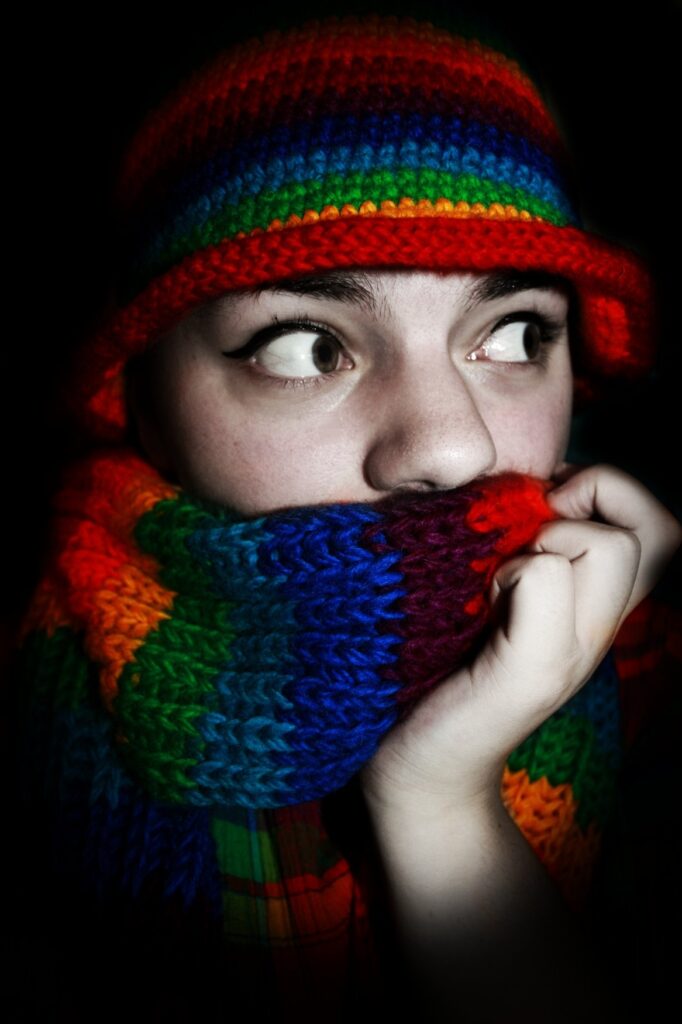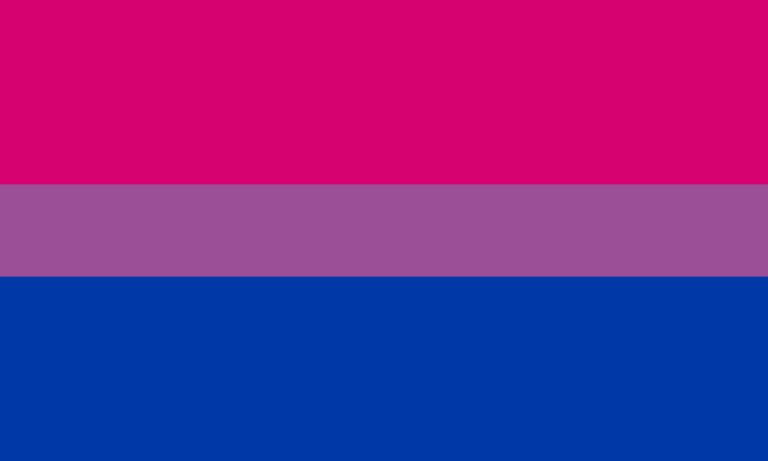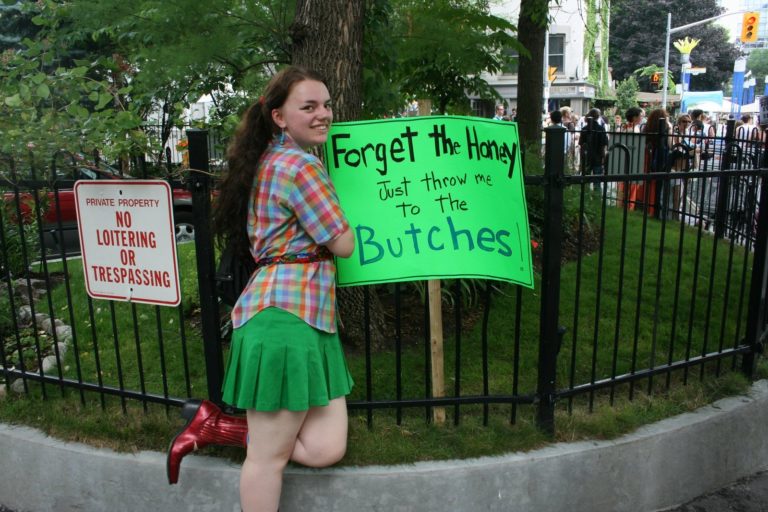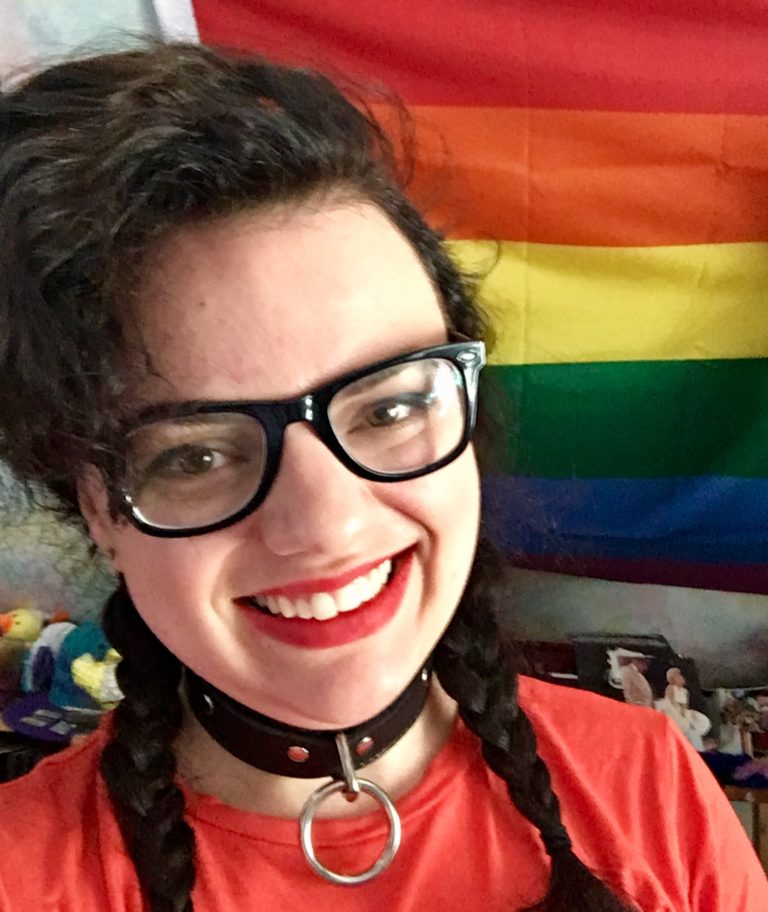
I’ve been out as bisexual for over half of my life, have dated and fucked people all over the gender spectrum, and I still sometimes wonder: Am I really as bi as I think I am?
It just goes to show how insidious the monosexist mindset is. When someone’s been trying to shove you in a box your whole life, no doubt you’ll occasionally look at that box and I think, “Could I fit in there, though? Wouldn’t everything be so much easier if I could?”
And sure, maybe life would be easier, in some ways, if we could convincingly hide ourselves away – but in other ways, it would be much harder, because we’d be fighting against our natural inclinations day in and day out, always wondering what might have been, if we’d been brave enough to bust out of that box.
To that end, here are 5 possible steps I’d suggest if you’re trembling on the precipice of identifying as bi, but not quite sure whether, or how, to take that leap…
1. Are you even defining bisexuality right?
I think questioning your own definition of bisexuality is an important first step in this process, because a lot of people don’t even know what bisexuality is, and so they think they’re not bi, when in fact they totally are!
So here’s my definition: Being bi means that 1) you’ve been sexually and/or romantically attracted to people of two or more genders and 2) you self-identify as bi. That’s it.
Here are some things that are not required in order for you to identify as bi (and don’t let anyone tell you otherwise!):
- Being attracted to all genders equally or in the same ways
- Having had sexual and/or romantic experiences with people of multiple genders
- Only being attracted to cis men and cis women (bisexuality is generally considered a trans- and nonbinary-inclusive identity these days, although some people prefer to use other terms such as ‘pansexual,’ ‘omnisexual,’ or simply ‘queer’ to make this more clear)
2. Fantasize
Let’s be honest: if you’re flirting with the idea of maybe being bi, you’re probably already doing a fair bit of fantasizing 😉 but if not, it’s a great time to start!
I don’t just mean sexually fantasizing, either – romantic fantasizing can be very telling when you’re trying to figure yourself out. And if you find that some genders are more romantically appealing to you while others are more sexually appealing, don’t fret – that’s pretty common and doesn’t make you less bi.
Don’t know where to start? Pick a hot person of the same gender as you (could be someone you know personally, or a celebrity/public figure) and a hot person of a different gender from you, and then notice how you feel as you picture each of them…
- telling you that you’re cute
- nervously or confidently asking you on a date
- listening attentively while you tell a story from your life
- sexily asking permission to kiss you
- kissing you in your favorite way(s) to be kissed
- looking at you with sexual longing in their eyes
- going down on you
- …etc., etc., etc.!
3. Watch porn
When fantasizing is hard for whatever reason (including actively battling shame or confusion about a new sexual label!), sometimes it’s easier to “outsource” the fantasy process by watching porn. Notice how you respond to different kinds of bodies, gender presentations, situations and sex acts. If you’re a nerd like me, you may even want to keep notes of your reactions as they happen, which you can review later, like a sex scientist assessing the findings of a research study in order to draw a conclusion.
Worth noting, though: People’s porn tastes don’t always line up with their IRL sexual tastes, and that’s fine. Research shows, for example, that many straight women love lesbian porn, likely because it depicts dedicated clitoral stimulation and egalitarian power dynamics more often than straight porn does. This is why I think it’s useful to ask yourself not only whether a particular porn clip turned you on, but why it turned you on. You may not always know, exactly, but it’s a good question to ponder.
4. Kiss a friend
If you’ve got an open-minded friend who stirs Bi Feelings in your very soul(/junk), maybe they’d be down to smooch for a bit, so you can test the waters of your potential new sexual identity.
Big caveat here, though: You should only ever do this in a way which is respectful of your friend’s feelings. You may have heard vicious biphobic rumors about how all bisexual people are just “trying on” that identity, “aren’t really” bi, and will eventually break their partners’ hearts by cheating and/or leaving them for someone of a different gender… and while these are harmful and unfair stereotypes to apply to an entire demographic, they come from a grain of truth: It does hurt to feel used, fetishized, and cast aside by someone who ultimately decides/realizes they’re not into you (or not into your entire gender)! So, if you want to explore and experiment with a friend, be realistic and truthful about what you’re actually offering, be tactful and kind about any rejection that ends up happening (on your end or theirs!), and always remember that they’re a human being with emotions, not a fantasy-fulfilling sex robot with bionic genitals.
5. Hire a professional
Sex workers are quite simply the best at what they do – and that includes not only the sex part, but often also the communication around sex. These skills can be enormously helpful for clients who are nervously trying something new for the first time.
For instance, I’ve read several posts on Reddit from virgins in their twenties who opted to hire a sex worker for their first-ever sexual experience, sometimes even saving up money for months and traveling far distances to do so – and who can blame them? I imagine the best female escorts in London, Paris or New York have more-or-less “seen it all,” so they wouldn’t be phased by the awkward fumbling of a nervous virgin, and could even talk him through the whole experience. (Hot, tbh!)
Likewise, I think escort services are worth considering if you’re a newbie to the land of bisexuality. If you’re not sure whether a particular provider would be down for a session like whatever you’re imagining, send ’em a respectful email to ask before booking. Godspeed, baby bi!
Fellow bisexuals, what initial steps helped you most when you were figuring your shit out?
This post contains sponsored links. As always, all writing and opinions are my own.



